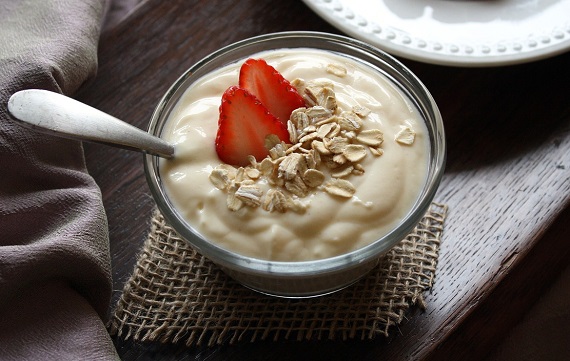


Australia's most comprehensive organic and natural directory
Blog / Food
08 Nov 2016Probiotic Foods for Health

There are trillions of probiotic bacteria which live in our digestive system and contribute to health. In the 21st century we have an overwhelming amount of factors that are negatively affecting our health and disrupting the delicate balance of healthy bacteria in the gastrointestinal system.
An imbalance in the good and bad gut bacteria can cause various health issues like acne, IBS, low immunity, autoimmune disease and poor nutrient absorption.
There are certain things we can do to ensure the health of our good bacteria like taking probiotic supplements and avoiding cigarettes, alcohol, refined sugar, processed foods and stress. However, one of the easiest ways is to eat foods that are fermented to contain natural, living strains of healthy bacteria and yeast.
Historically, humans have eaten foods rich in probiotic bacteria because food was fermented to preserve it in times before refrigeration.
Here are 6 of the healthiest probiotic foods:
Yogurt
Yogurt is a very popular and loved item which has been around for thousands of years. It is a lacto-fermented food that is made with two anaerobic bacteria strains, however many brands of yogurt add additional live cultures for extra health benefits. It is most commonly made from cow’s milk but it can also be made from sheep, goat or buffalo milk. It is important to be aware that many supermarket bought yogurts have been heavily processed and contain sugar and additives which cancel out the probiotic benefits. When buying yogurts always read the label and look for brands that are organic and grass-fed with no added sugar.
Kombucha
Kombucha is a fruity effervescent beverage that originated in Japan and has been used for over two thousand years but has only shot to mainstream popularity in the last few years. It is made by fermenting black tea using a symbiotic colony of bacteria and yeast (a SCOBY). Its main health benefits include improving digestive health and detoxification but many people drink it daily for the taste alone.
Miso
Miso is a traditional Japanese food that is made from fermented soybeans and is most commonly used as a seasoning. It is packed with minerals, vitamins and protein in addition to probiotic bacteria. It comes in a variety of flavours depending on the conditions in which it is fermented.
Sauerkraut and Kimchi
Fermented vegetables have been around for thousands of years because this was the only way to preserve foods before refrigeration was common place. In Korea vegetables such as beans, carrots radishes, and cabbage are fermented using salt and spices to make Kimchi which is a much loved food item in the East.
Sauerkraut originates from Germany and consists of cabbage that has been fermented with salt. It is now a popular food item across the world and is delicious eaten in salads or accompanying a meat dish.
Kimchi and sauerkraut are packed with vitamins, minerals, antioxidants and probiotics, however make sure to either buy a raw unpasteurised version or make your own as many of the commercial varieties have been heated and no longer have probiotic benefit.
Apple Cider Vinegar
Many people know and love apple cider vinegar but are unaware that it is a probiotic food when taken in its raw, unfiltered version. It contains something known as “the mother” which gives the vinegar a cloudy look and provides proteins, enzymes and probiotic bacteria.
Kefir
Kefir, meaning “feeling good”, is a fermented milk product that has been eaten for over 3000 years. It is slightly effervescent but generally very similar in taste to yogurt. It is made by fermenting milk with kefir grains that contain beneficial yeast and bacteria. In addition to being an excellent source of probiotics it also contains Vitamin A, B12 and D, calcium and protein.
For more information on probiotic foods:
Natural Living Ideas.
http://www.naturallivingideas.com/probiotic-foods-for-better-gut-health
Kitsa's Kitchen.
http://emporioorganico.com.au/kitsa-s-kitchen.html/
Peace Love & Vegetables
http://www.peaceloveandvegetables.com.au/page/products








